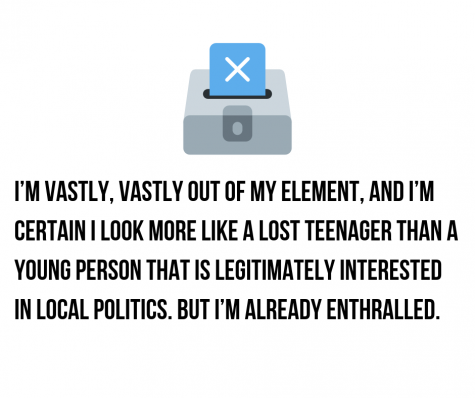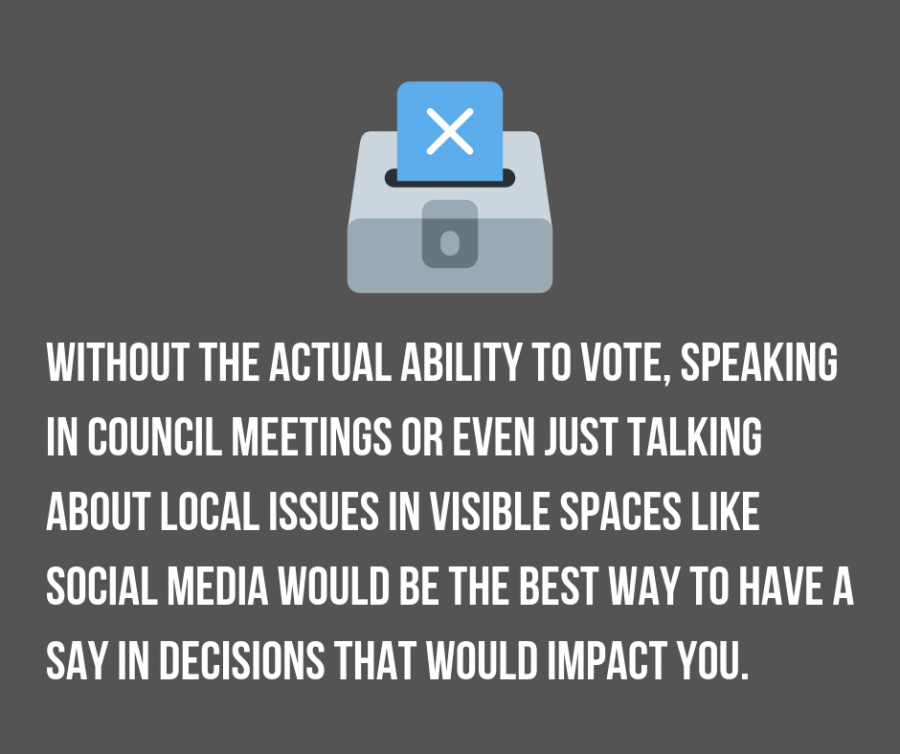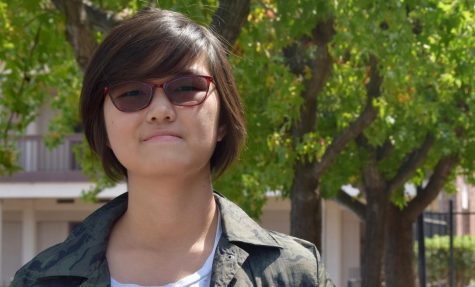Foot in the Door
Why I got into local politics, and why you should too
December 19, 2018
I’m gonna be honest. I went through a comparatively bizarre phase when I was completely obsessed with local politics.
It started in September when I was assigned to cover the approval of the new Vallco Specific Plan. On the surface, it didn’t seem like that big of a deal: I was going to report on a dead mall becoming less of a dead mall. But as I dug deeper into the issue, I realized that it was practically neck-deep in controversy. Political action committee Better Cupertino (BC) had risen to the stage in order to prevent the development of the Vallco Specific Plan, and had even gone so far as to propose a referendum to halt its development. All of this came following an hour-long interview with its founder, Liang Chao, who then seemed altogether unbothered by the night’s chill as we sat outside a closing Peet’s, the hand holding my phone seemingly developing arthritis as she spoke about how the City Council has “screwed up” over and over again in the process of redeveloping Vallco.

It’s also no secret that BC has faced much criticism, mostly by people who want the Vallco Specific Plan to go through. Accusations on both sides of the equation have run rampant on Nextdoor, with some of BC’s more extreme supporters alleging that Sand Hill supporters were non-residents with no right to speak about Vallco, and Sand Hill supporters retaliating by calling BC supporters violent and cultish. This absolute polarity in a community otherwise somewhat apathetic about local politics fascinated me to no end, and soon I found myself intentionally sticking around at the Cupertino Library later than usual just to observe the pro- and anti-referendum camps trying to sway passersby not five feet away from each other.
Fast forward a couple months to December. I arrive at the City Hall 30 minutes before the new city council members are to be sworn in, and as I enter the lobby of the City Hall, I realize how out of place I look: 17 years old, in sweatpants and a black hoodie, phone in one hand and tote bag in the other. Virtually everybody else in the room is at least 20 years older than me and at least has some form of decorum about them. Jon Willey, wearing a white suit with the Sharpied signatures of his supporters, is being interviewed by a local Chinese news outlet. I’m vastly, vastly out of my element, and I’m certain I look more like a lost teenager than a young person that is legitimately interested in local politics. But I’m already enthralled.
City council meetings are really fun for me to watch or listen to. The idea that I’m starting to learn about decisions that are impacting my community at a seemingly much lower age than many others in this field gives me a sense of pride. Attending the Oath of Office ceremony was in and of itself a learning opportunity; I would not otherwise have gotten the same sense of perspective as I did watching the people around me and how many of them were there to applaud their guys, because let’s be honest, Washington isn’t an outstanding model of civility in politics right now. I think everyone could at least stand to listen to a few minutes of a city council meeting. If nothing else, you’d know how decisions are made within the council, and how those decisions affect your day-to-day life as a citizen in Cupertino. Because believe it or not, many of these decisions do have a measurable impact, even on the lives of students just trying to get to and from school every day. You’d notice, for example, if there were suddenly more cars on the roads you frequent or more students at your school.
If nothing else, you should get involved to make your voice heard about issues that affect you. Speakers at city council meetings are, by the overwhelming majority, adults. And the City Council itself seems enthusiastic about youth participation in politics — they’ve opened ways for students to submit feedback on current events or projects, and the new City Council at least seems more enthusiastic about hearing from all community members rather than just the ones that voted for them in November. And without the actual ability to vote, speaking in council meetings or even just talking about local issues in visible spaces like social media would be the best way to have a say in decisions that would impact you.
After all, it’s your community. You should know how it works.




























